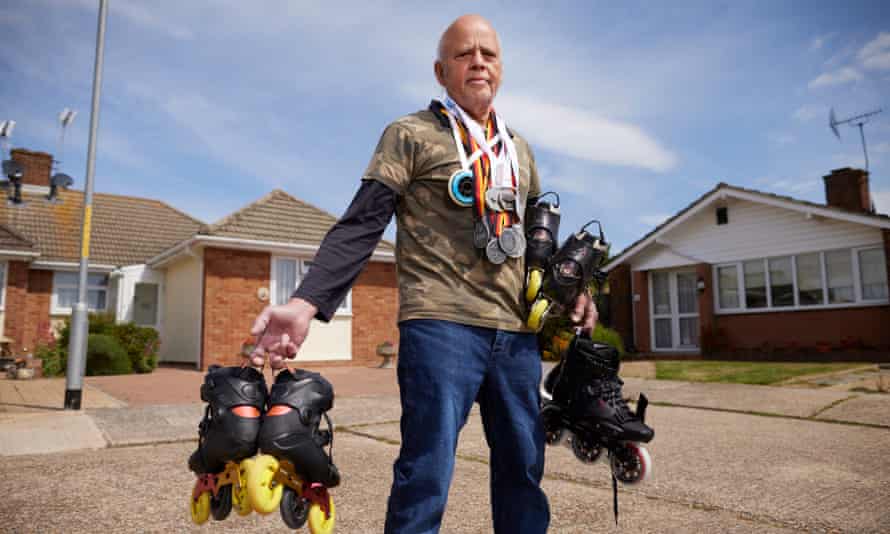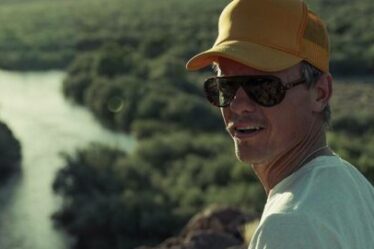
On his 60th birthday, Maurice Newman caught the train from his home in Kent to London and bought himself a pair of inline skates. He wanted “a new challenge – something that would not cost too much and be a good all-body workout”.
He was not fazed by the wheels beneath his boots – he had previously ice skated, and besides he has a high risk threshold – so he headed straight for Hyde Park. At 8pm, the park thickened with skaters, and Newman was swept along on an eight-mile street skate. “I only just survived it,” he says. “I was so tired when I walked back to Victoria station.” Ever since, he has regarded his skates as “a passport”.
“I can take my skates to any park in the world and make friends,” he says. That’s how it was in Vietnam, in Myanmar (which he visited recently) and in Berlin, where he has completed skate marathons. In Dubai, he skated slowly over the polished floors of the shopping malls, just to see what the guards would say (nothing).
Newman is 77 now, and many of the friends he made on weekly skates in Hyde Park have married, had children, left the scene. But new groups have formed. In Herne Bay, where he lives, Newman skates socially at the rink on Saturdays and alone daily, often along the coastal path from Reculver to Margate. “Twenty miles is nothing,” he says. “I just knock it off. It’s not like running. There’s no impact. The more technique you have, the less effort it takes. You can skate right to your grave.”
Newman, a welder who still works one day a week, grew up in Myanmar. His father was a logger and the family moved with his work. “I went to many schools: one month here, two months there.” In class, his mind was always elsewhere. “I was a dreamer. I wanted adventure.”
When Myanmar (then Burma) became independent, the family felt displaced. “We were part of the British empire. British, yes. But not in race. Just British because we chose to be more British than Burmese. Our culture was more Anglo. We had legs in both camps,” he says.
They left Burma for Borneo, and from there went to England in 1960. At 18, Newman joined the British navy – satisfying that longing for adventure – and at 23 he met his wife-to-be, Ruth, at an ice skating rink in south London; they have been married for 44 years. But Newman’s identity is “complex. In England I feel more eastern than British. But if I go to Borneo, I feel more British than eastern.”
Over the past few years, he has taken to revisiting the schools he attended in Myanmar. In Bhamo, he says, “Nothing’s changed. The barbed wire where I cut my leg is still there … Time stops.”
Did he leave a part of himself behind back there? “No, I don’t have that feeling,” he says. “Not in the sense that I want to go back in time. I want to go forward. I want to still be doing something exciting when I’m 80. I want to be doing something at 90. But of course I don’t want to live for ever, because it’s too tiring.”
Newman is a lifelong learner (he returned to education in his late 40s to do a fine art degree) and a creative thinker (he likes to make skate art by using his wheels instead of brushes). He has recently taken up parkour, though he has “always done [it], before it was called parkour, swinging on branches” in the jungle.
“I have always wanted to play my whole life,” he says. “That’s what keeps you young and fit. If I’m tired, I put on my skates and I’m not tired any more. It’s a drug to me.”
Maybe on skates he no longer feels he has a leg in two camps? “That’s a good question,” he replies. On wheels, there are no borders. “I haven’t been conscious of it, but I can see that now. It’s probably a very nice place to be in the world,” he says. “A very peaceful place.”


